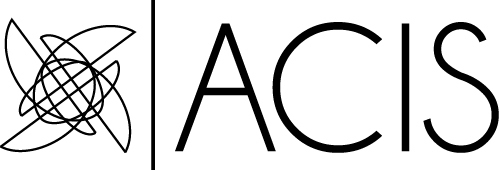
Toward the end of what was for many a long cold winter, ACIS 2015 was held in the appropriately balmy setting of Fort Lauderdale, Florida. In spite of its laidback mood, and the dangerous proximity of the beach, this was a purposeful and well-planned conference, stimulating and convivial in equal measure. One of the best reasons for staying indoors proved to be the series of poetry roundtables, devised by Eric Falci and ably chaired by Guinn Batten, Patricia Coughlan and Ellen Scheible, all of whom led memorable and stimulating conversations on each of four contemporary Irish poets—Eavan Boland, Eiléan Ní Chuilleanáin, Seamus Heaney, and Thomas Kinsella. The roundtable format enabled both free and focused discussion on the most recent collection by these poets, on the concept of late work, and on how we might read and teach the poet’s oeuvre. Each session offered fresh perspectives and points of continuity, creating a dialogue that extended over the course of the conference.
Among the formal papers too poetry featured strongly, with panels dedicated to Louis MacNeice and to Seamus Heaney, as well as a thematic concentration on questions of space and place. Sustained interest in the work of Sinead Morrissey opened her work to new readings but also reflected a continuing engagement with identity politics in Northern Ireland. In addition, we were fortunate to have a wonderful group of poets available to read from their own work. Notwithstanding these poetic pleasures, fiction was by far the most prevalent mode at ACIS, with an emphasis on contemporary writers such as Patrick McCabe, Colum McCann, and Colm Toibin, as well as thriller and detective genres. There was a welcome engagement with some comparatively neglected figures, such as Brinsley MacNamara and Bryan MacMahon. Yet the giant of modern Irish fiction continued to be the dominant subject of papers. The final score? Joyce 16; Yeats 2. No penalty shootout required.
The expanded contexts within which Irish identity can be explored—its folk traditions and popular culture, such as sport and dance—enriched the broader debates and provided some conference highlights: Rhona Richman Kenneally, speaking on Maura Laverty’s food writing, demonstrated the need to move beyond familiar paradigms in exploring the dynamics of relationship in modern Irish culture. In an equally stimulating and thought-provoking way, race relations in the nineteenth century were the focus of Marjorie Howes’ plenary lecture. Through the figures of William Lloyd Garrison and Daniel O’Connell, and especially their representation in print, she traced attitudes towards abolitionism among Irish immigrants in America. Irish-America was naturally an important feature of the conference as a whole, both in dynamic explorations of social and political history as well as in literary texts, especially those by women writers.
Biopolitics—particularly well served at ACIS 2014—is a continuing preoccupation, though this time (surprisingly) the emphasis tended towards the historical, rather than the contemporary. The exception was Moynagh Sullivan’s plenary—a landmark reading of Emma Donoghue’s Room through theories of the maternal. Here ideas of containment are made central to our understanding of the place of the child in recent Irish history, revealing the role of theoretical discourse in helping us to grapple with contemporary crises. Environmental issues, also of pressing importance, had a limited airing only at the conference, though the “Eco-Ireland” panel offered thought-provoking papers and Kathryn Kirkpatrick’s examination of animals in Paula Meehan’s Ireland Chair of Poetry lectures opened an important channel between poetic and critical performance. More indirectly, sustainability—both textual and disciplinary—underpinned panels dealing with digital projects, where theoretical and methodological perspectives on the important intersection between the Digital Humanities and Irish Studies offered new possibilities for future research.
